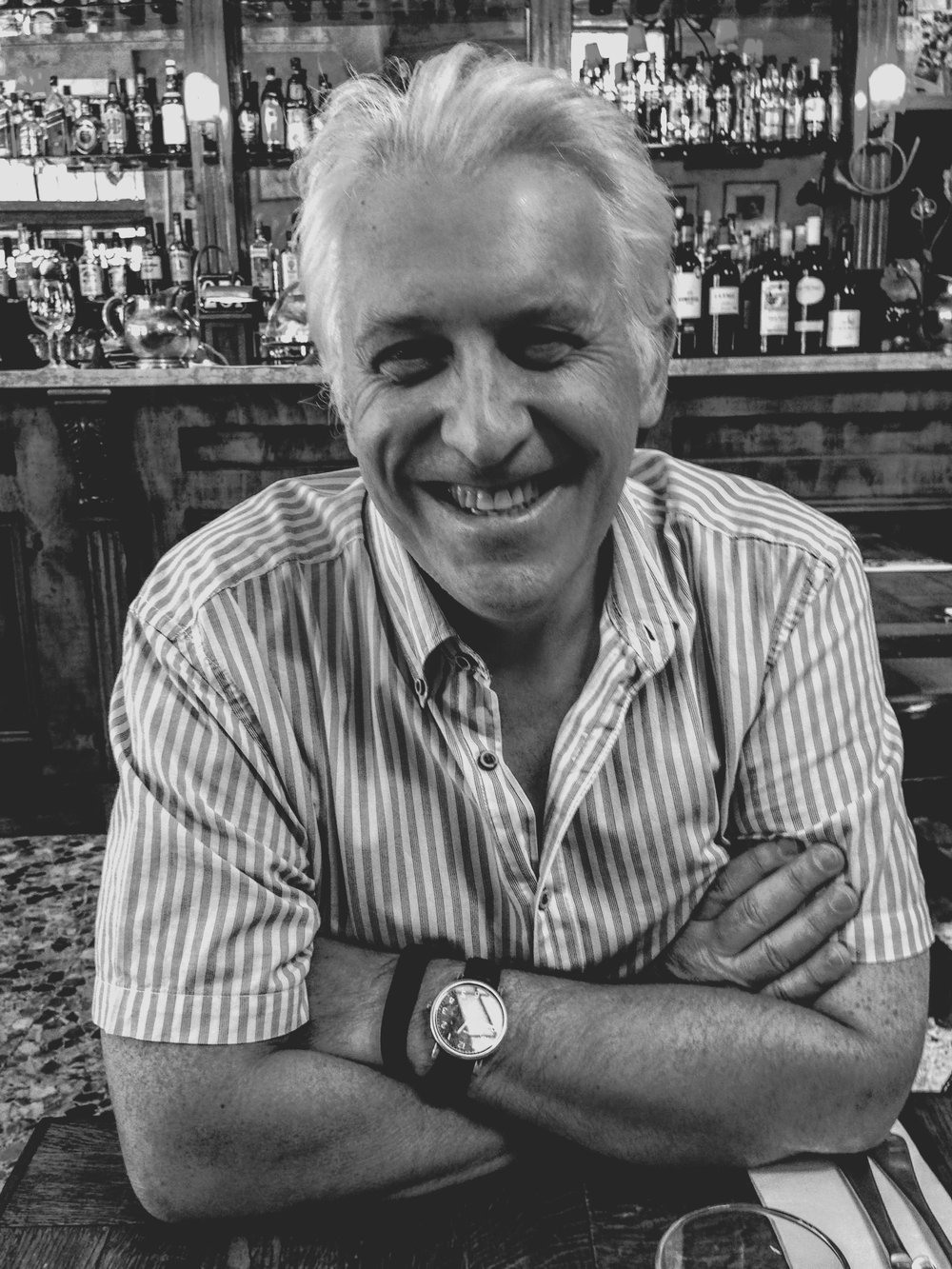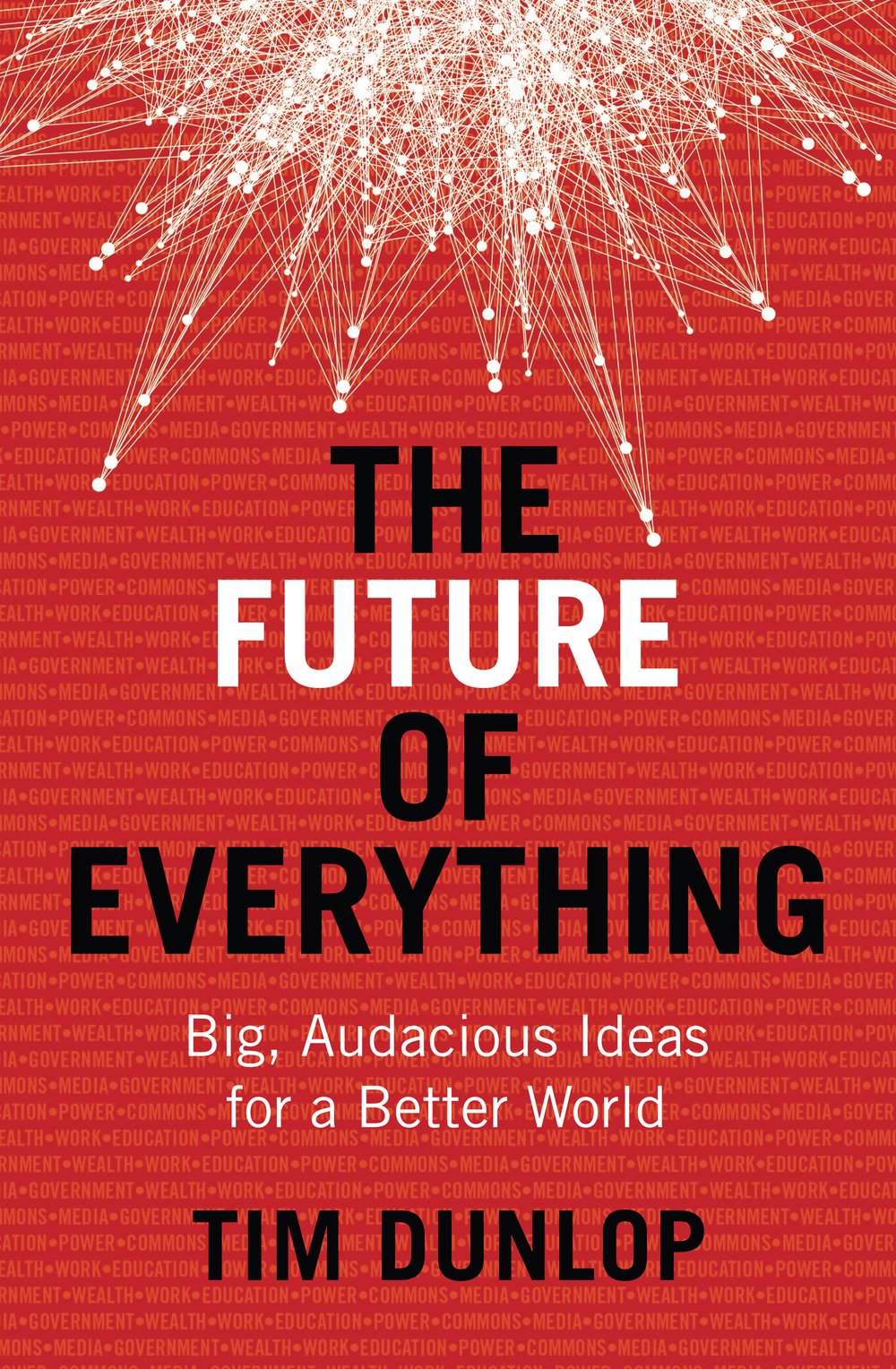It starts with a theory of power and ends with a theory of joy
The Future of Everything is written for people who want a better world, and who want practical ideas for how that might be achieved. It is unashamedly ambitious, and I have no doubt some of the ideas I put forward will be ridiculed and dismissed, but that’s a risk I’m willing to take. We have reached a point in human history where the old ideas are failing and, in many ways, we need to reinvent our societies from the ground up. We need to reinvigorate our democracy so that we can all thrive and progress together: we need to divide the cake more fairly so we can stop fighting over the crumbs.
Calling your book The Future of Everything is asking for trouble. How can a single book possibly talk about everything? It can’t, obviously, but I wanted to give a sense of the scale of what I think faces us in the coming years as the certainties of the past disintegrate. But I also wanted it to be a positive and hopeful book, and that is reflected in the subtitle: Big, Audacious Ideas for a Better World.
I have divided the book into two sections, Premise and Practice.
Premise is about the underlying philosophy of the book, and I begin with a chapter on political power. Big ideas are not enough: you need a way to make them happen, and so I offer a theory of power, a way of organising people to get things done.
Premise also contains a chapter called Commons, which is about the life we live together. It is about ways of understanding and sharing the resources we need in order to live a life in common. It is about protecting the earth so that we have an earth to share. I argue that the privatisation of everything from electricity grids to public parklands and roads has robbed us of our common heritage and we need to take it back.
The rest of the book, the Practice section, sets out specific ideas in a number of key areas: Media, Government, Wealth, Work and Education. Each chapter explains what is wrong with these intuitions and suggests some ways to fix them. I talk about new forms of media ownership, shorter working hours, and ways of distributing wealth that ensures none of us ever fall into poverty.
Beyond all this, I had three particular goals.
The first was to make the book accessible. Readable.
A book like this relies on a lot of specialist information but much of that research is academic, or written by various experts, and often those sorts of people write in jargon and other longwinded ways. I wanted to translate their work into a language that the rest of us could understand, to tell a story about the challenges we face, and to explain as clearly as I could my ideas about what to do. So I think you will find the book very reader friendly. In fact, you can read the chapters in any order at all, though I think if you read it from beginning to end, a story emerges that will help you understand the changes I am arguing for as part of a coherent plan.
The second goal was to offer actual solutions.
There are any number of books out there that will tell you what is wrong with the world: far fewer that will tell you how to fix it. I wanted to write a book that provided some answers, so I talk about everything from new ways of electing members of parliament, to different ways of working, to ways of ensuring that we all earn enough to live a decent life.
The final goal was to include a chapter that stepped back from economics and politics and talked about the good things in life. That chapter, the last one in the book, is called Joy and that is exactly what it is about, the joy of living a fulfilling life with others.
So, the book starts with a theory of power and ends with a theory of joy, and in between it offers solutions to the problems that beset us. It mightn’t cover literally everything, but it tackles some of our most important challenges.
One final thing: the entire book is based on the idea of a radical democracy, one in which ordinary people have the final say in the decisions that affect their lives. Experts and other elites have a role to play, but the heart-and-soul of the society I describe is the citizens themselves, and every change I suggest is based on the idea of giving ordinary people the time, the power and the money to be able to live the life they choose.
I hope you enjoy it, and please feel free to drop me a line on Facebook or on Twitter and let me know what you think.
Tim Dunlop’s book The Future of Everything will be published by NewSouth in September 2018. He is also the author of Why the future is workless which was published by NewSouth in 2016.



